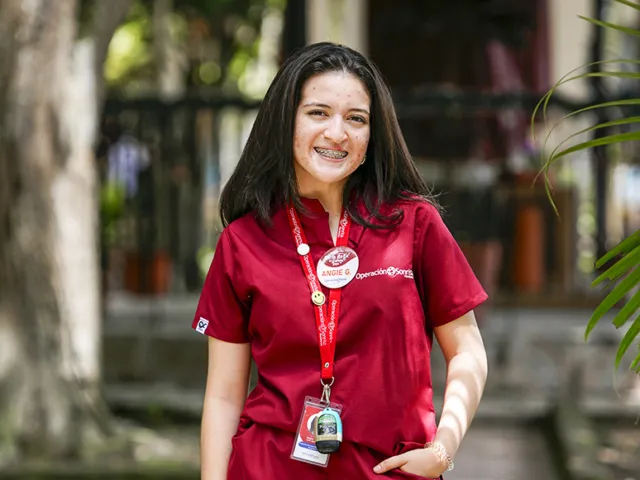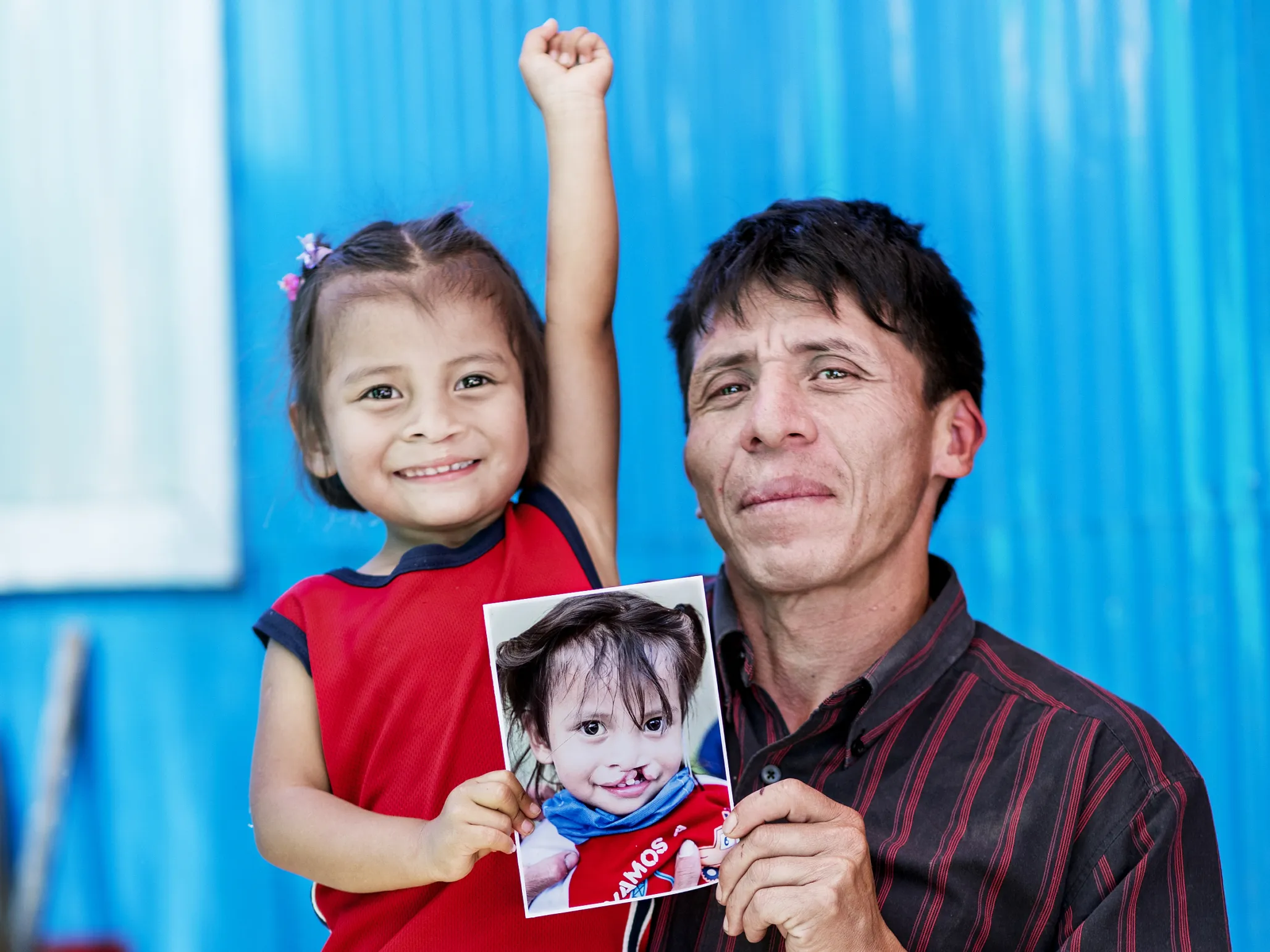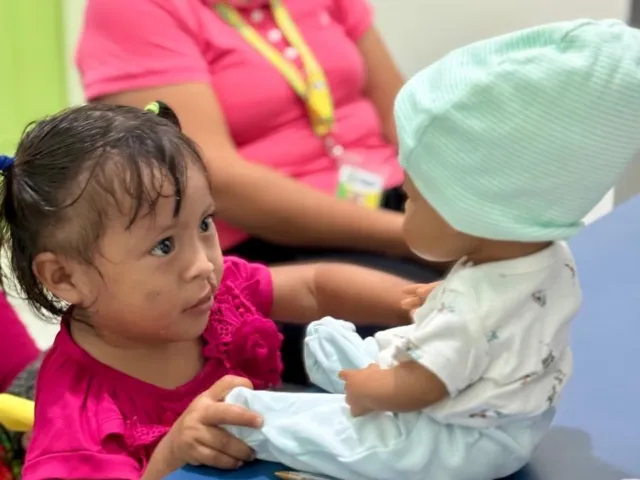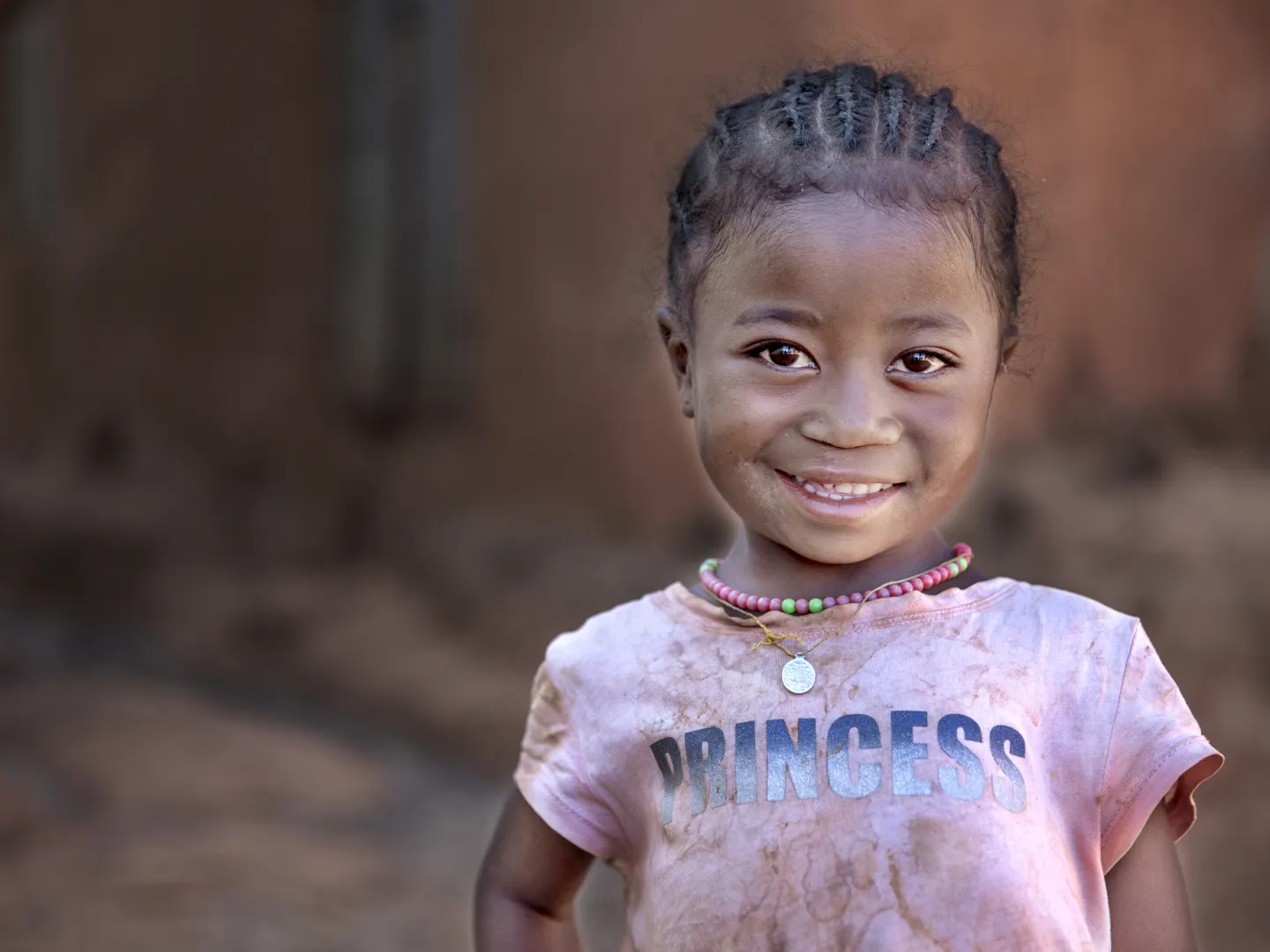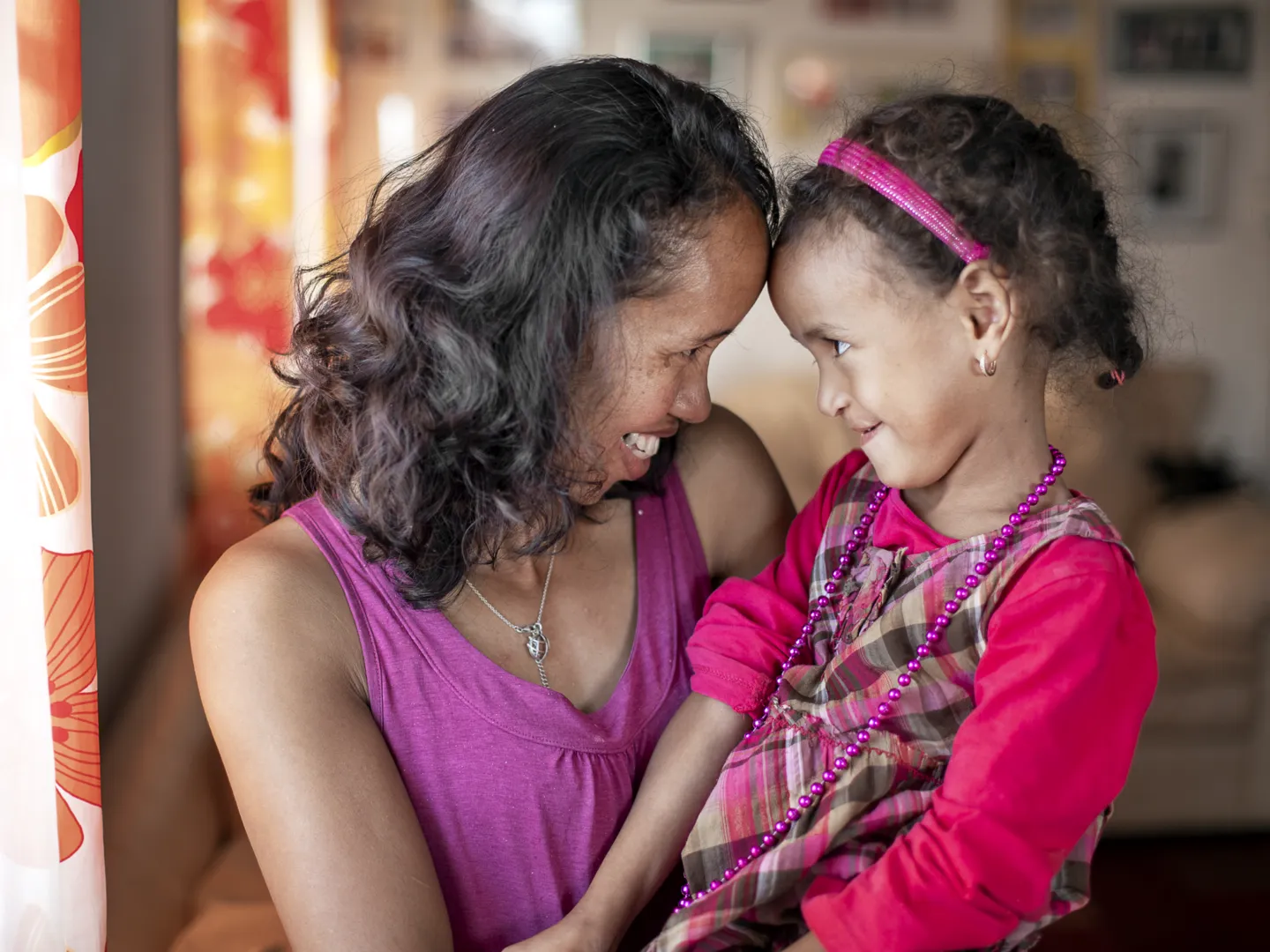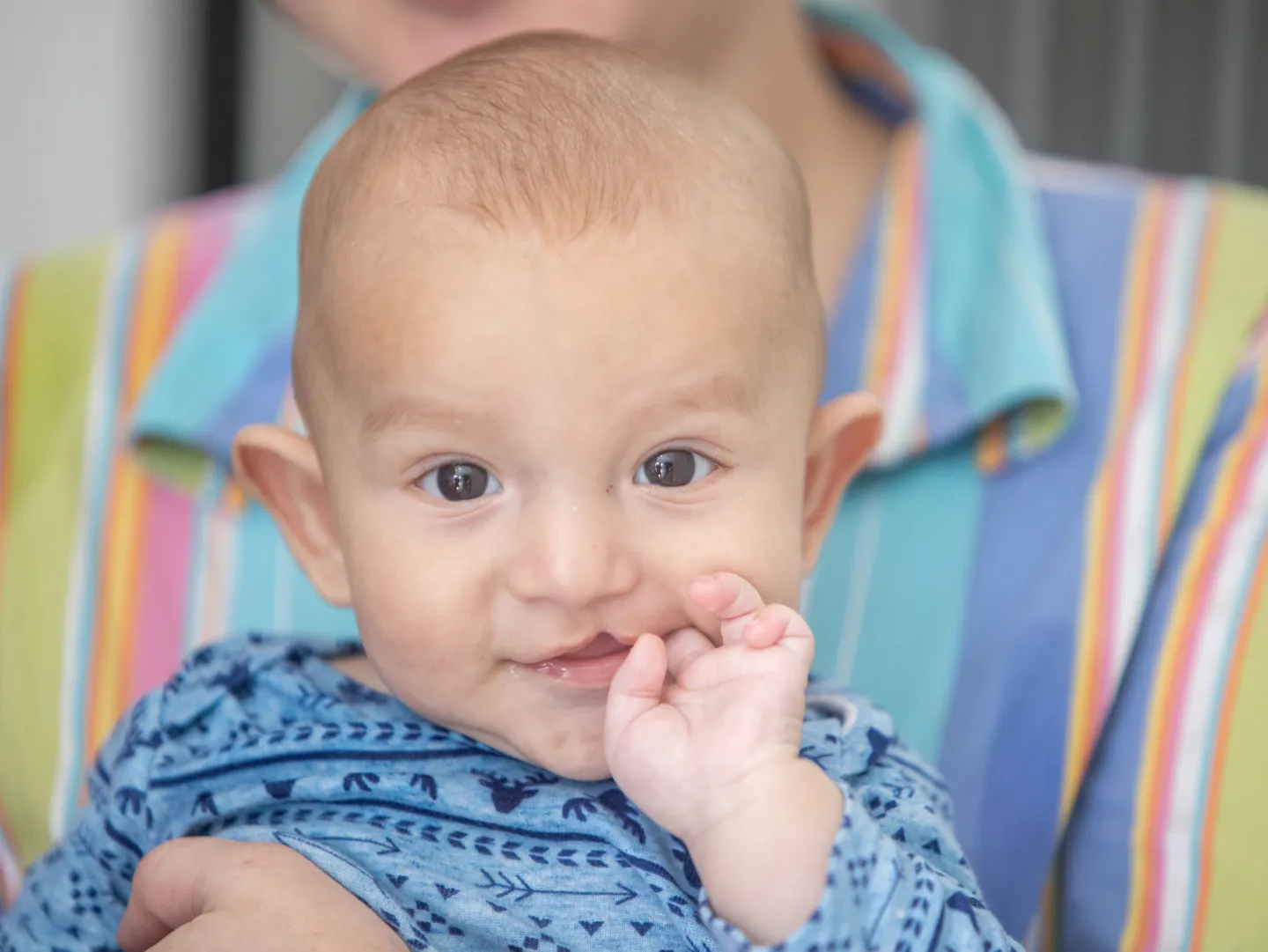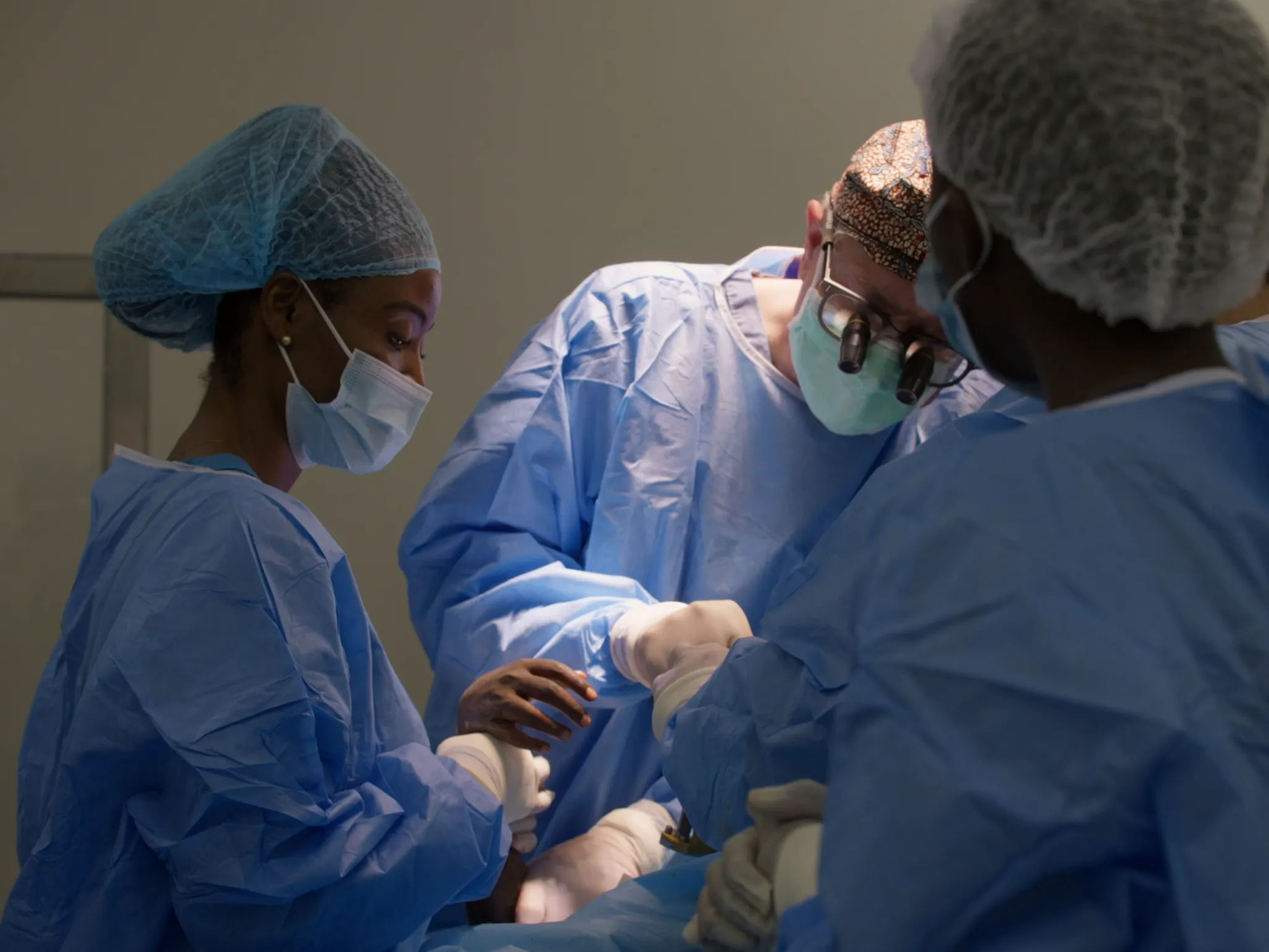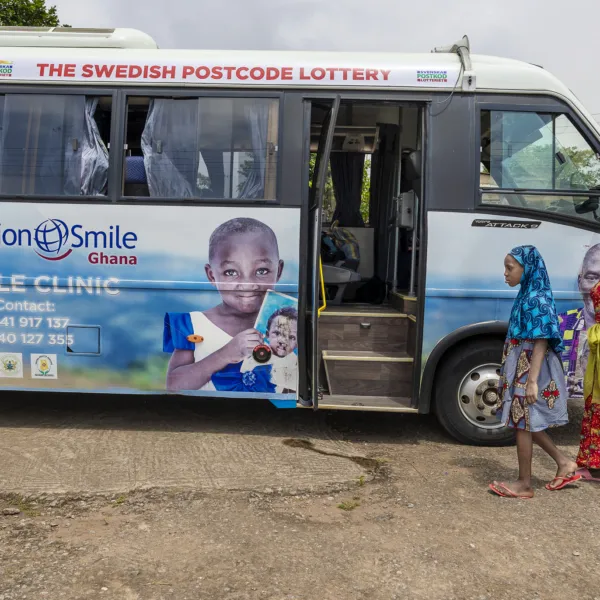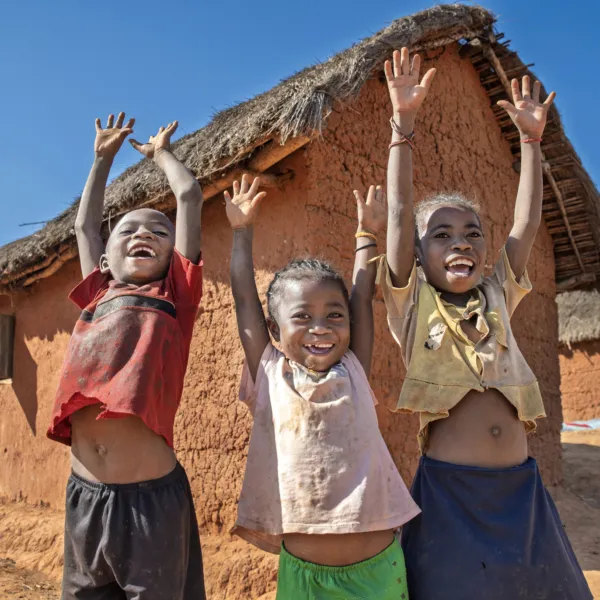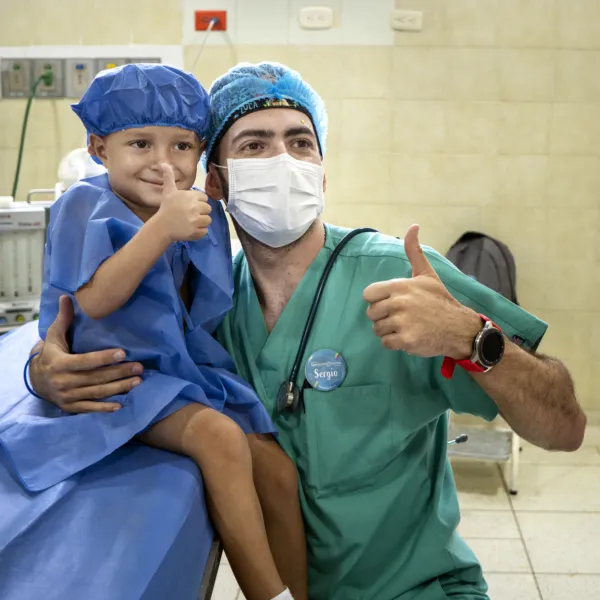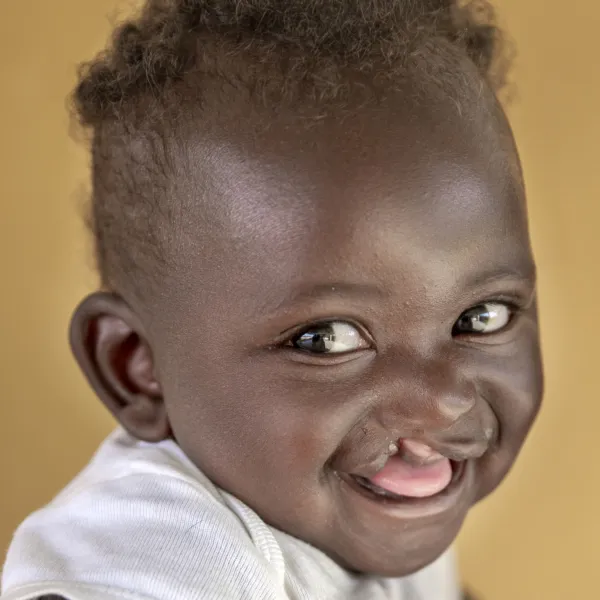Patients
Scenes of Hope and Healing: Kigali Resident Training Program

As Operation Smile deepened its commitment to improving access to cleft care in Rwanda, it became evident that the needs of the population extend far beyond cleft conditions. Much of the demand for surgery stems from trauma and burn wounds, and with a lack of adequately trained surgeons equipped to deliver this type of specialized treatment, an immense burden threatens the Rwandan health system and the lives of patients who are forced to wait as their conditions worsen.
To address this need, we conducted surgical training rotations in Rwanda that focused on empowering general surgeons by improving their skills and teaching them reconstructive plastic surgery techniques that they can perform in their local communities.
Our November 2021 resident training program we conducted in Kigali took our education efforts to the next level. To help alleviate needless suffering in Rwanda, Operation Smile partnered with the University of Rwanda, College of Surgeons of East, Central and Southern Africa (COSECSA) and the Rwanda Surgical Society to help establish a new three-year specialist training program in which three Rwandan plastic surgery residents receive extensive education that not only empowers them with knowledge and skills but gives them the advanced training required to become board-certified reconstructive plastic surgeons.
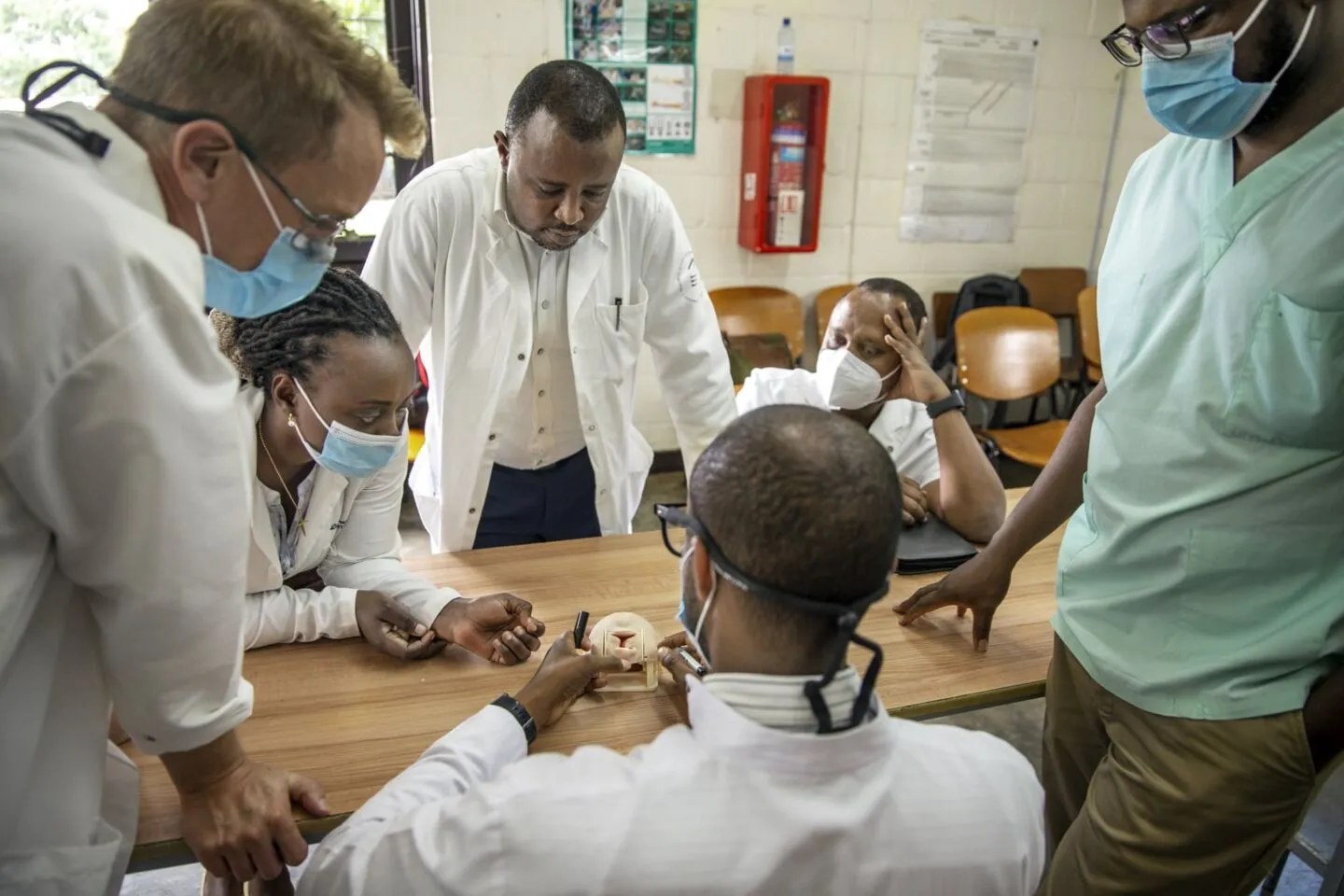
Françoise, Yves and Ian are the first group of three residents who plan to take their board exams in 2022.
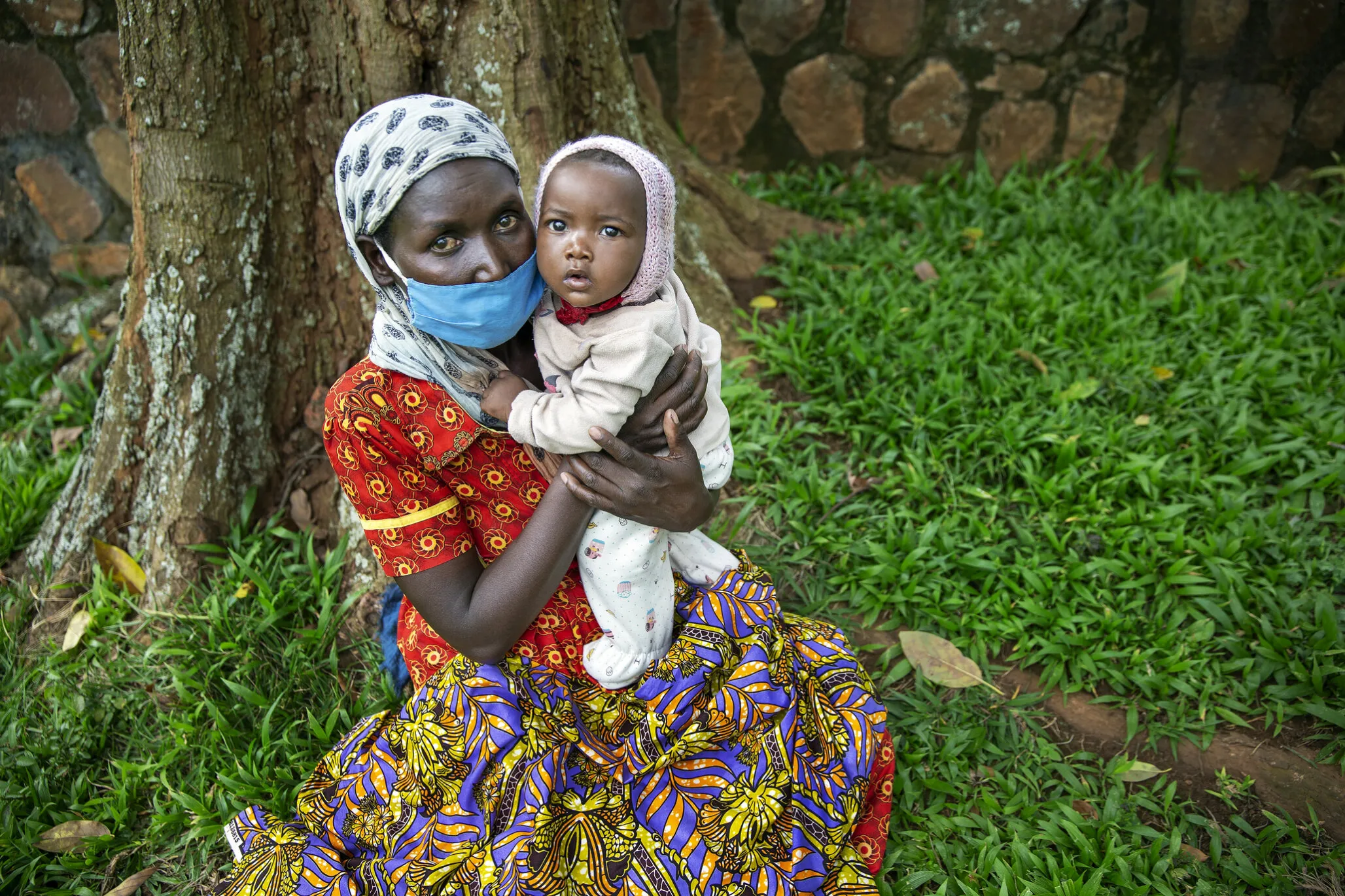
When Promesse was born, Marthe immediately knew something was wrong because her baby had trouble breastfeeding. After two weeks of watching her daughter struggle to eat, Marthe looked into her daughter’s mouth and discovered that Promesse had a cleft palate. Seeking care from their local clinic, Marthe was referred to the nearest hospital, only to be told by the medical staff that there was nothing they could do to help.
Marthe’s worry and sadness began to deepen. Painful memories from her own childhood preoccupied her thoughts as she remembered back to how she also faced challenges with food coming out her nose and had difficultly speaking clearly. She shared that up until the age of 10 years old, she didn’t speak at all, which led to her being badly harassed by her peers.
“I had no friends, and I never went to school,” Marthe said. “Even when I started talking a little, in my teens, they treated me as if I was worthless.”
She wanted so much more for her daughter.
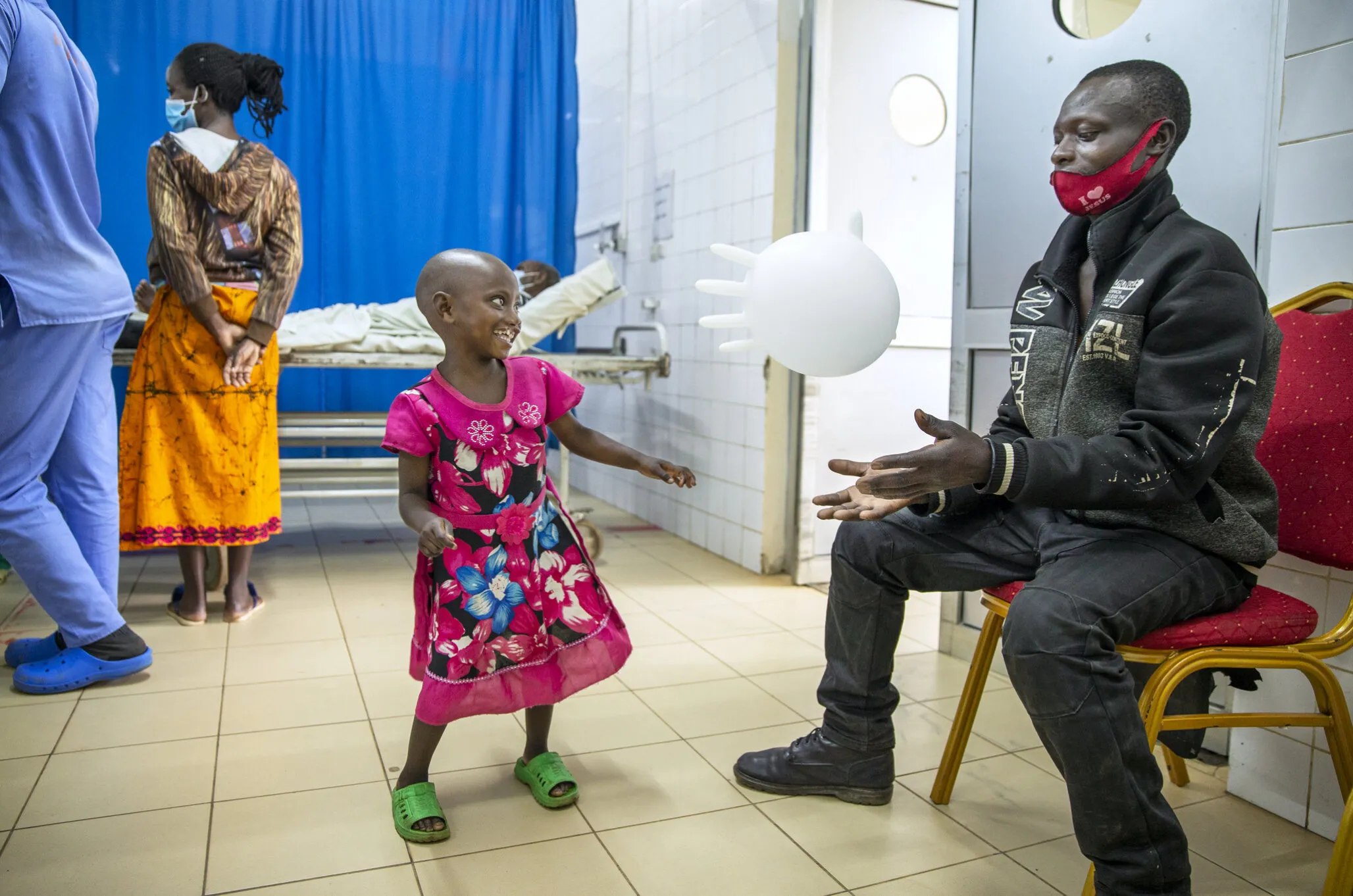
Jean explains that the mistreatment Valentine receives from others due to her cleft condition has kept her isolated most of her life.
“She has not been harmed physically, but the intimidation,” Jean said. “The other kids are harassing her, and they don’t want to play with her. Surgery will turn her life around.”

For Joshua, he has a deep indent from where one of these bands wrapped around his right arm. In addition, the fingers on his left hand fused together, leaving only his thumb the proper length.
“Joshua’s father left us when he saw his son,” said Joshua’ s mom, Fidelite.
Not for one moment did Fidelite think about abandoning Joshua. Her love for her first born outweighed any obstacles that lay ahead. She shared that despite his condition, she is happy. She says that Joshua is curious and clever, and he’s friendly to those who treat him with decency and kindness.
However, while some members of their community treat her and Joshua well, there are others who visit their home just out of curiosity and to mock the family.

Twelve patients were screened for this program, and six – all of whom had varying conditions that required reconstructive care – received life-changing plastic surgery.
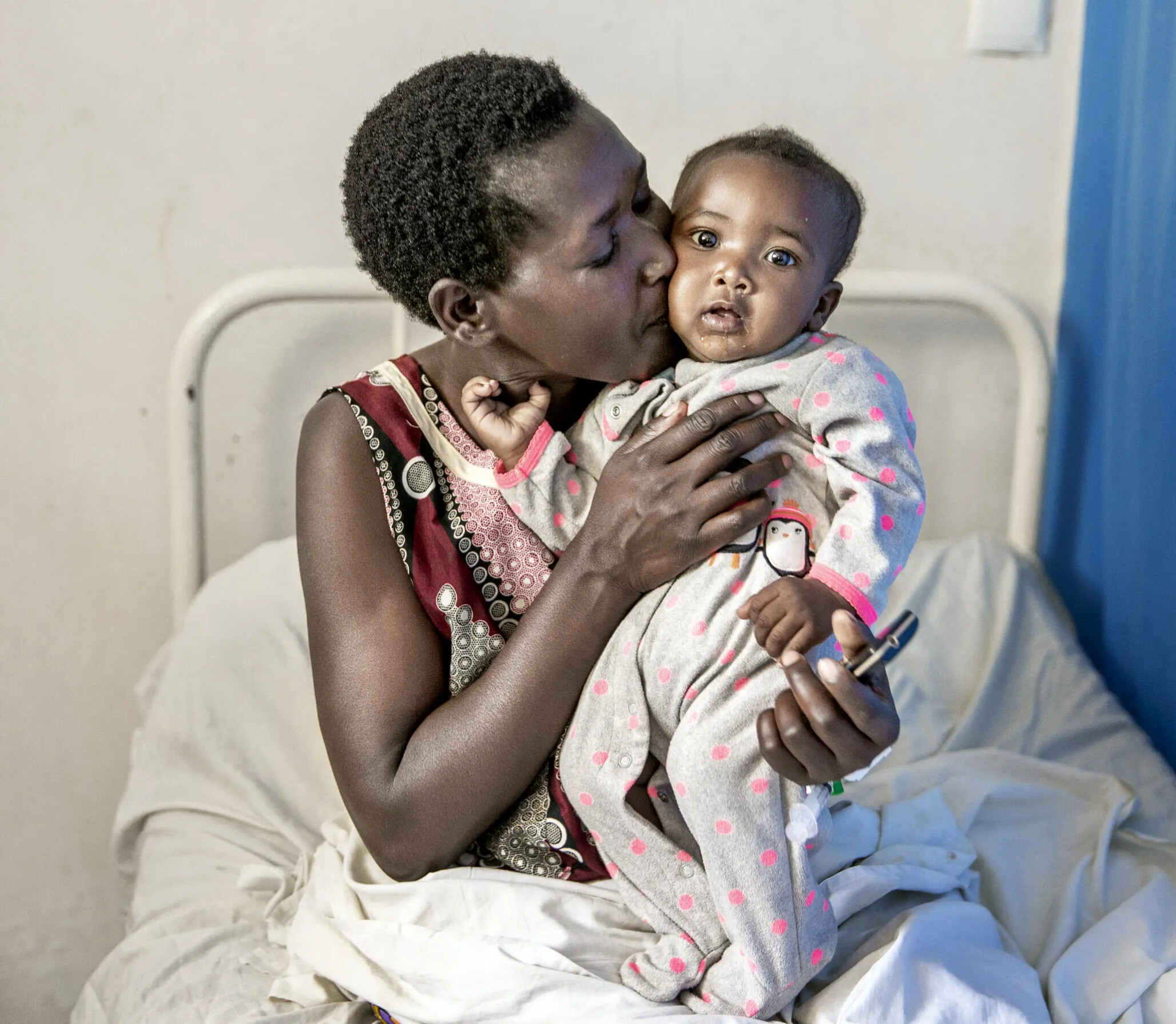
Her hopes were realized when Promesse passed her comprehensive health evaluation and was scheduled for cleft palate surgery. However, something unexpected happened that Marthe never could’ve imagined. During screening, one of the local residents realized that Marthe was living with an unrepaired and undiagnosed cleft palate for 38 years.
Before that day, Marthe never knew that the cause of her speech problems and difficulties with eating as a child was due to the fact that she, too, had a cleft condition. Marthe was deemed healthy enough for surgery, and the day after Promesse’s cleft palate was repaired, Marthe entered the operating room for her own surgery.
“I’m looking forward to not have food come out my nose. This will give me a whole new sense of self-respect,” she said. “But most of all, I’m so happy that Promesse will not have to go through what I have been through.”
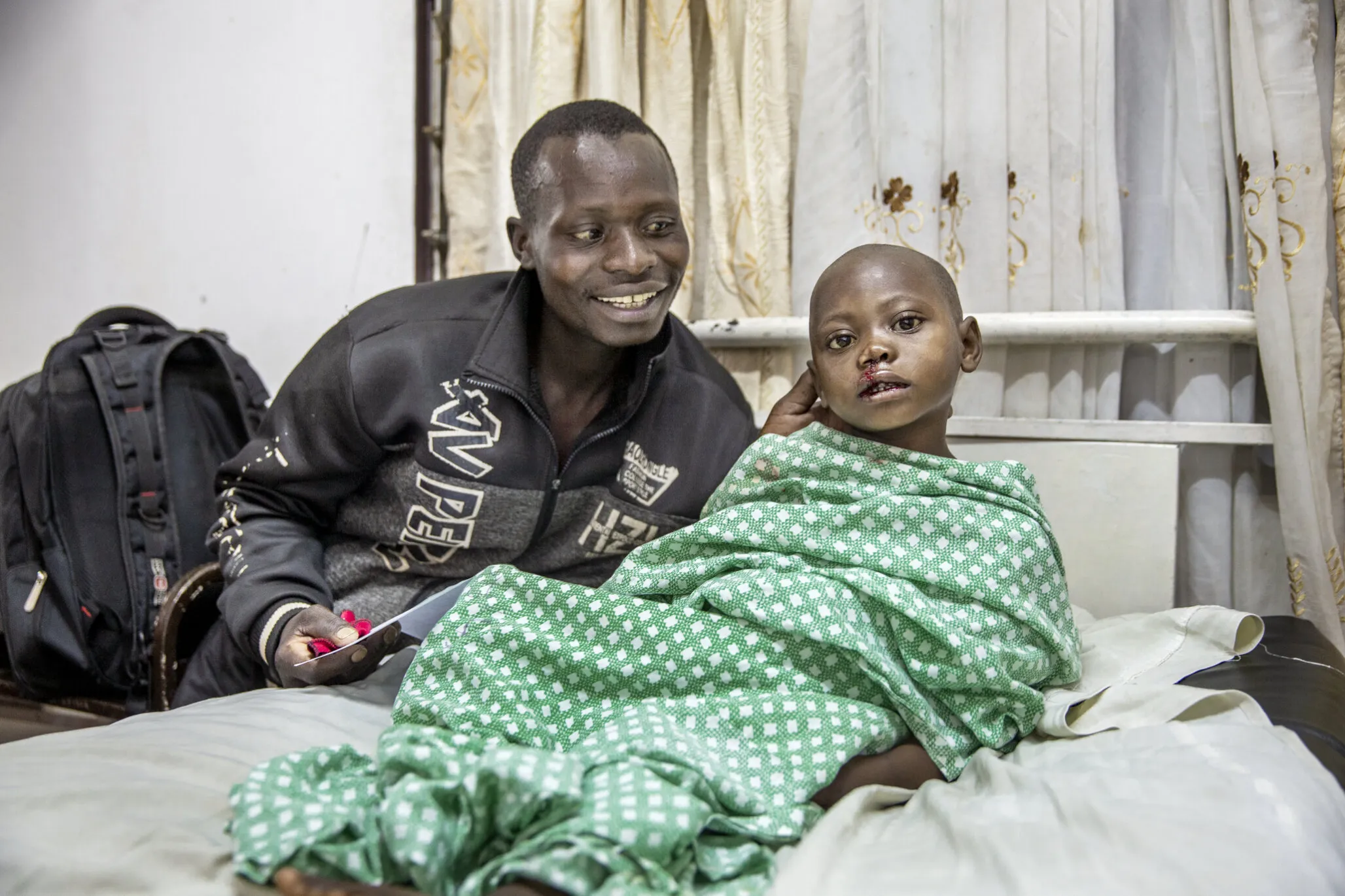
The morning after surgery, Jean looks at his daughter’s new smile and sees the chance for Valentine to have a happier and brighter future.
Valentine was asked how she was feeling after surgery. Eagerly hoping to make friends and be treated with kindness, she said, “I want to start school already.”
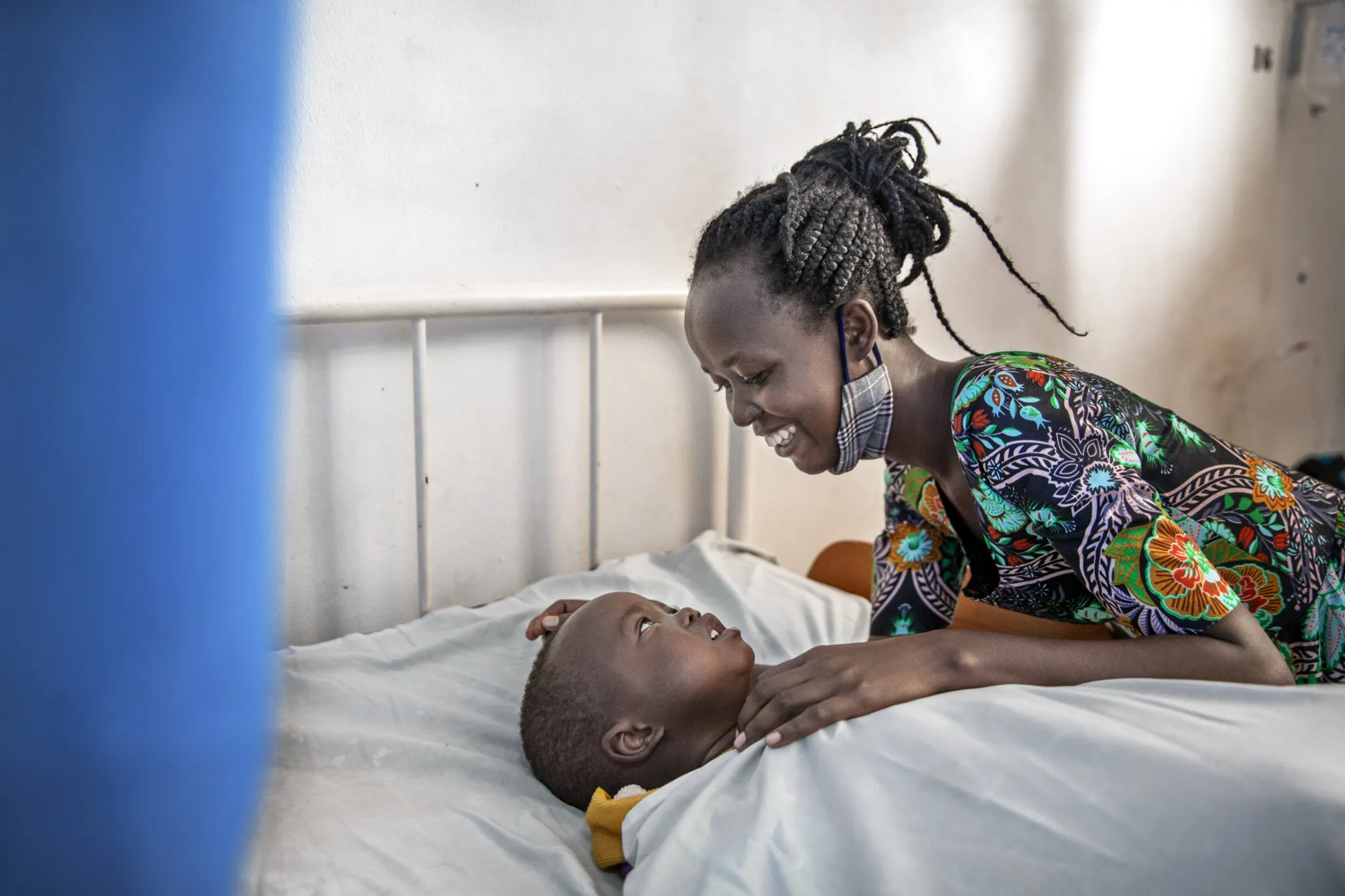
The morning of Joshua’s surgery, Fidelite said she felt safe putting Joshua into the arms of the volunteer surgeons. She also shared that she’s confident that his surgery will change his life.
Once it was finally time to see him after surgery, Fidelite felt relief and happiness as she hurried to Joshua’s side, eager to hold him again.
